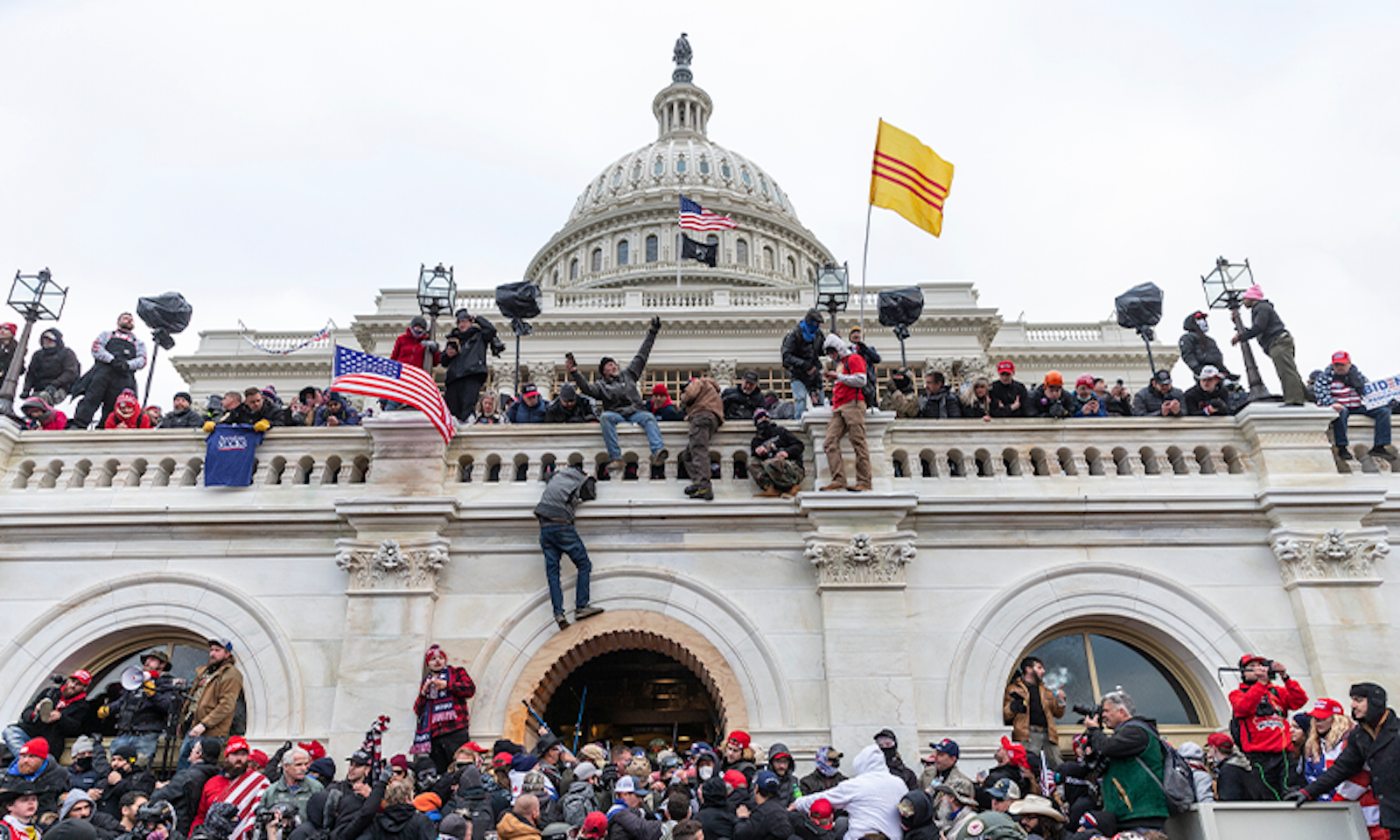Not long ago, when the January 6th Committee was investigating the causes of the 2021 attack on the United States Capitol Building, its members reached out to Stephen Reicher. Reicher is a social psychologist at the University of St Andrews, across the pond in Scotland, where he studies group behavior by focusing on, among other things, crowd action, political rhetoric, and national identity. Reicher says the committee asked him to help them understand former president Donald Trump’s role in the mass violence that followed his Jan 6. speech at a rally near the White House. Reicher obliged, co-authoring a report on the psychology of crowds and leadership that described the impact of Trump’s speech.
“We fight like hell. And if you don’t fight like hell, you’re not going to have a country anymore,” Trump told his followers. Though his speech contained no direct orders to attack, the Jan. 6 Committee ended up recommending that the U.S. Justice Department charge Trump with inciting insurrection. But while the Justice Department relied heavily on the committee’s report, it didn’t ultimately charge Trump with incitement.
Effective leaders are entrepreneurs of identity.
“I can’t delve into Trump’s psyche,” Reicher told me in our recent video call from his office. “I don’t know what he thought he was doing.” But for Reicher, what Trump intended to happen is beside the point. He believes a direct link between Trump’s speech and the assault on the Capitol is supported by a powerful body of research, including his own, on the ways social identity influences leadership. In a new paper, published in the British Journal of Social Psychology, Reicher and his colleagues analyze Trump’s speech and conclude that the president left the door open for violence.
Nautilus caught up with Reicher to discuss his findings.
You say Trump’s speech was a “critical element” in the violence. How so?
Part of our argument hinges on the power of existential threat. Trump says we [his supporters] are in danger of annihilation, and there’s a specific action that needs to be taken to get rid of that threat—stopping the certification of the election. That’s what the speech is all about. Notably, for Trump, it’s not “I will make us great again.” It’s that any patriot has got to act. In a sense, the gauntlet is being passed from Trump to the people. And he says anybody who doesn’t stop the certification is not a true American.
Why is this invocation of shared identity so powerful?
It creates a moral obligation. He doesn’t tell people to assault the Capitol. But in arguing that “we are the moral good, and we are in danger of annihilation,” it provides a moral warrant for extreme action. It doesn’t mean the insurrection was inevitable. But it does mean that those who were violent can legitimize their actions. It also gets them feeling strong enough to act against law enforcement. You don’t feel “it’s just little me against them.” It’s all of us. And we view this as legitimate. And feel obligated.
How is Trump able to stoke these thoughts and feelings in the crowd?
This gets us to the social identity perspective we take on leadership. It argues that we behave very differently when our group identities are salient—in terms of the norms, values, and interests of the group rather than our individual values. When it comes to influence, insofar as you’re in a position to define who “we” are—an American, a Catholic, a Manchester United supporter—then you’re in a position to shape what people believe and do. So effective leaders are entrepreneurs of identity—they create and define a sense of “us.” Trump is a very effective entrepreneur of identity in defining himself as part of the people against an American and global elite, a classic populist.
What sort of evidence supports this model of leadership?
There’s a very wide evidence base: experimental studies of influence processes, which show that leaders are more effective when they are seen as in-group. They’re more effective when what they say is seen as representing what the group identity is all about. There are field studies, a body of historical evidence, as well as a body of rhetorical analysis of speeches, and of what leaders do. The notion that what you are doing is serving a greater good [for your group] is actually critical to people being prepared to do extreme and toxic behaviors. In our work around the Stanford Prison Experiment, for example, we’ve shown the role of leadership: The guards in that study were told, “You need to be brutal, so that we can show the effects of a brutal prison system and therefore, what you’re doing serves that greater good.”
So what got the crowd to attack the Capitol if Trump never explicitly told them to?
There is some interesting work by a well known historian of the Nazi period named Ian Kershel. He argues there’s no written order to eliminate the Jews. To look for an order is to misunderstand the way in which the Nazi machine worked. Hitler pronounced goals, but not how those goals should be met. That led to different agencies competing to meet that goal, radicalizing as they went along. Kershel uses the phrase, “working towards Hitler.” Similarly—but I’m not likening Trump to a Nazi—the process of setting a goal to block the certification, while at the same time not saying precisely how it should be done, sets off a process where people see this as a critical goal. It sets in train a process where people radicalize as they compete to reach that goal. It’s a way of showing the authenticity of your identity, of claiming status: “I am more of a true American than anybody else.” ![]()
Lead photo: lev radin / Shutterstock
































